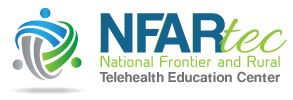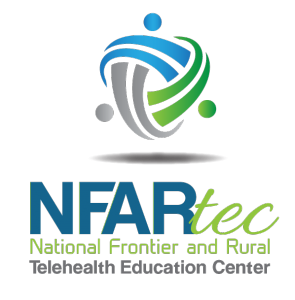

Cognitive Behavioral Therapy (CBT) for Substance Use Disorders (SUDs)
Cognitive behavioral therapy (CBT) is an evidence-based, psycho-social intervention method that aims to treat substance use disorders (SUDs). CBT is a short-term and focused therapeutic approach to help people learn to better identify the negative and self-defeating thoughts/actions that can contribute to substance use. Individuals with an SUD may often struggle with negative feelings or thoughts that can make recovery more difficult. Because CBT focuses on identifying and replacing such thought patterns with more adaptive ones, it can help improve an individual’s outlook and skills that support recovery.
This 7-week, interactive Enhanced Professional Learning (EPL) online series will provide collaborative training and practice opportunities essential to the development of CBT skills.
WHEN
Weekly sessions offered on the same day and start time between August 7 and September 18, 2025. Day and time will depend on your location. Please locate your local time zone in the table below for your weekly start time.
| Location | Start Date | End Date | Weekly Start Time |
|---|---|---|---|
| California/Nevada | Thurs, Aug 7 | Thurs, Sept 18 | 3:00 pm PDT |
| Arizona | Thurs, Aug 7 | Thurs, Sept 18 | 3:00 pm MST |
| Hawaii | Thurs, Aug 7 | Thurs, Sept 18 | 12:00 pm HST |
| Pago Pago, American Samoa | Thurs, Aug 7 | Thurs, Sept 18 | 11:00 am SST |
| Koror, Palau | Fri, Aug 8 | Fri, Sept 19 | 7:00 am PWT |
| Hagåtña, Guam | Fri, Aug 8 | Fri, Sept 19 | 8:00 am ChST |
| Saipan, CNMI | Fri, Aug 8 | Fri, Sept 19 | 8:00 am ChST |
| Palikir, FSM | Fri, Aug 8 | Fri, Sept 19 | 9:00 am PONT |
| Majuro, RMI | Fri, Aug 8 | Fri, Sept 19 | 10:00 am MHT |
OBJECTIVES:
By the end of the CBT for SUDs series, participants will be able to:
- Describe at least three (3) ways that CBT can be used to treat SUDs.
- Identify at least three (3) key components of a cognitive behavioral approach to understanding urges, cravings, high-risk situations, and relapse prevention.
- Assess at least three (3) types of triggers and develop at least 2 (two) strategies for identifying cues.
- Specify at least three (3) basic principles in effective substance refusal in social pressure situations
- Describe at least two (2) key CBT techniques that can address specific behaviors and negative thought patterns in therapeutic sessions.
- List three (3) ways that CBT can be used in group therapy settings.
TARGET AUDIENCE:
Behavioral health, substance use disorders, and recovery service providers located in the Pacific Southwest ATTC region (HHS Region 9)
PARTICIPANT COMMITMENT & EXPECTATIONS:
- Attend a live 1-hour Orientation session on Thursday, Aug 7 (refer to chart above for scheduled dates/times in your time zone)
- Commit to 6-weeks of training for 1.5 hours weekly from Aug 14 – Sept 18, 2025
- Complete weekly self-study learning activities
- Access to appropriate technology to utilize Zoom videoconferencing platform (i.e., an internet connection, webcam, computer/laptop/tablet, speakers, and microphone)
- Be prepared and actively engage while on camera during the scheduled series time
FACILITATOR:
Mary K. O’Sullivan, LMFT, LADC, LPC
THERE IS NO COST TO PARTICIPATE
The first 35 registrants will receive a waiver that covers the entire $350 cost of participation. Once the 35 spots have been filled, registration will be closed. Due to limited enrollment, if you cannot commit to the full requirements, please defer this opportunity to others.
Note: Registrants enrolled in this series are expected to attend the orientation and Week 1 sessions. If you cannot attend these sessions, you will forfeit your attendance. In addition, it is expected that participants will have access to the appropriate technology by Week 1 to be able fully participate and be on camera during the session. This is not a webinar series and active participation is required to gain/improve skills.
CONTINUING EDUCATION:
This series has been approved for a total of 16 contact hours through the National Association for Addiction Professionals (NAADAC), International Certification & Reciprocity Consortium (IC&RC), and the National Board for Certified Counselors (NBCC) ACEP No. 6492.
 UCLA Integrated Substance Use and Addiction Programs (ISAP) is approved by the American Psychological Association to sponsor continuing education for psychologists. UCLA ISAP maintains responsibility for this program and its content.
UCLA Integrated Substance Use and Addiction Programs (ISAP) is approved by the American Psychological Association to sponsor continuing education for psychologists. UCLA ISAP maintains responsibility for this program and its content.
UCLA ISAP is approved by the California Association of Marriage and Family Therapists to sponsor continuing education for LMFTs, LCSWs, LPCCs, and/or LEPs (Provider #64812). UCLA ISAP maintains responsibility for this program/course and its content. Course meets the qualifications for up to sixteen (16) hours of continuing education credits for LMFTs, LCSWs, LPCCS, and LEPs as required by the California Board of Behavioral Sciences. UCLA ISAP is also an approved provider of continuing education for RADTs I/II, CADCs-CASs, CADCs I/II, CADCs-CSs, and LAADCs (CCAPP, #2N-00-445-1125), CATCs (ACCBC/CAADE, #CP40 872 C 0825), CAODCs (CADTP, #151), and Certified Medi-Cal Peer Support Specialists (CMPSS; CalMHSA CE Provider #1012). Provider approved by the California Board of Registered Nursing, Provider #15455, for up to 16 contact hours. UNR CASAT is an approved provider of continuing education credit for NCACs I/II and MACs through the National Association of Alcoholism and Drug Abuse Counselors (NAADAC, #98165). This program is approved by the Hawaii State Department of Health’s Alcohol and Drug Abuse Division (ADAD-AP25-035) for 16 education content hours (CPS, CSAC, CCJP, CCS, CSAPA).
CE credit will be awarded at the conclusion of the series for full-session participation. Partial credit will not be available for those participants who arrive to any particular session late or leave early. Make-up work will not be provided or accepted
QUESTIONS:
Please contact the NFARtec Workwise Staff at workwise@casat.org.


